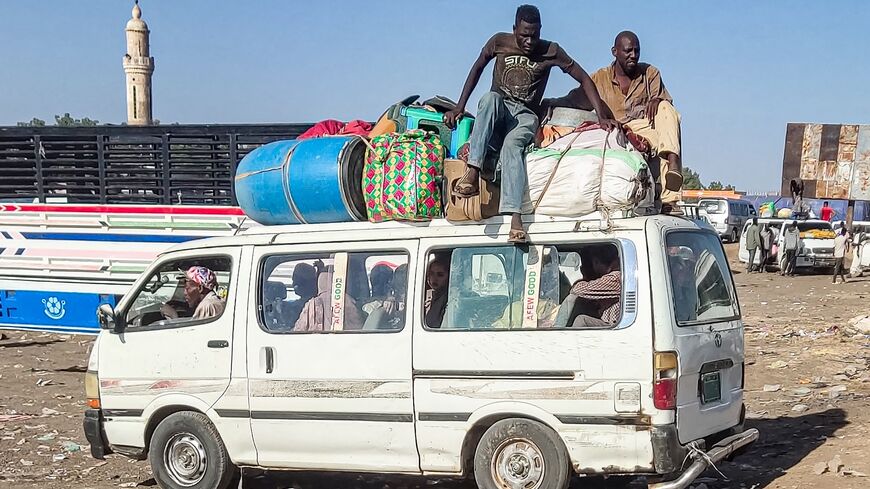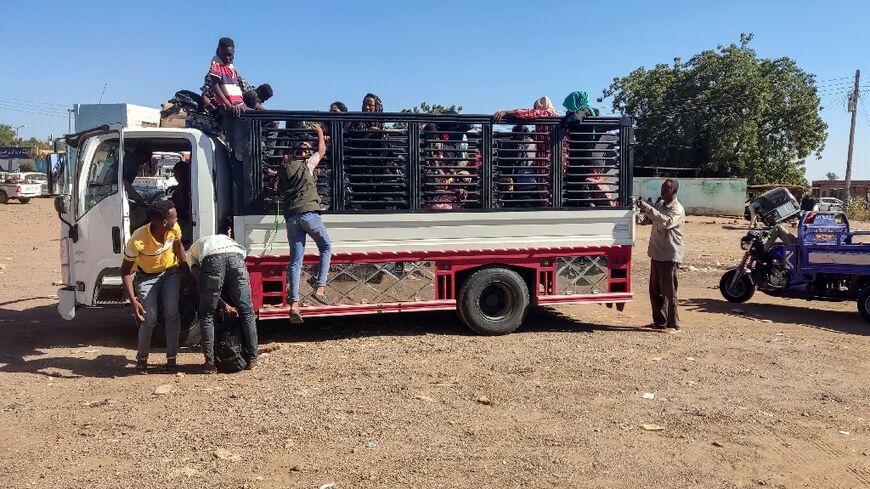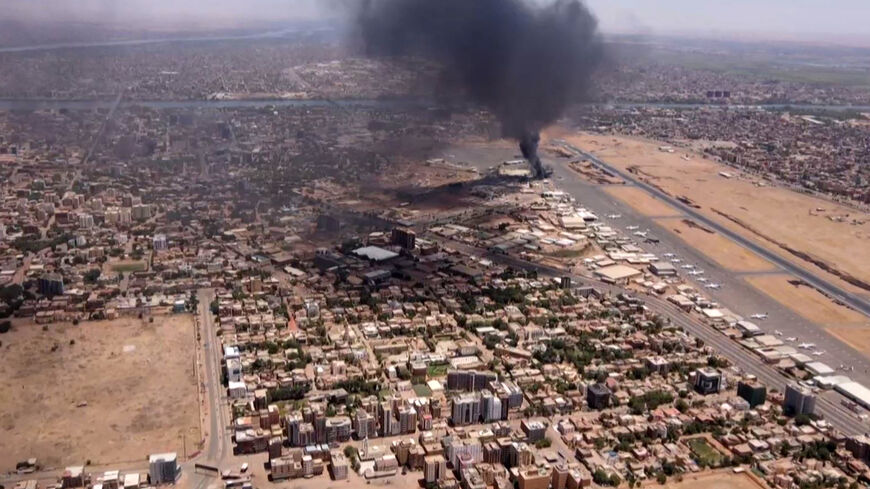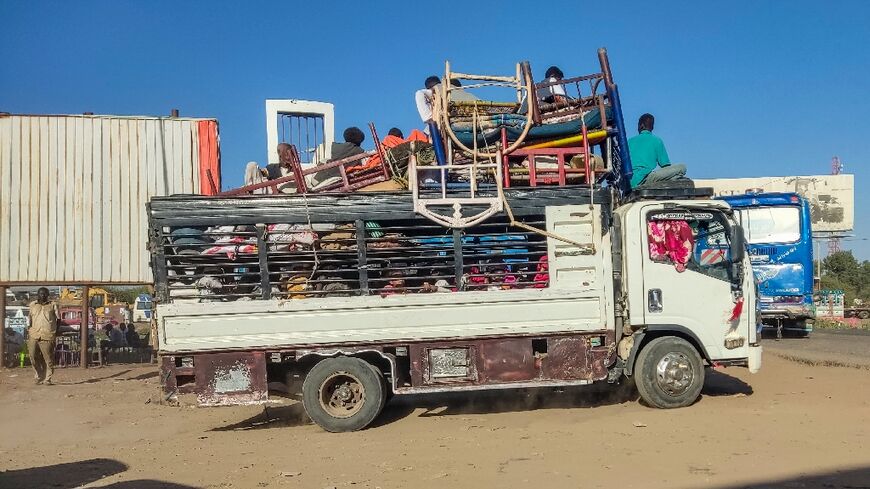Sudan: 500,000 newly displaced as fighting death toll passes 12,000
As the RSF widens its attacks in Sudan, humanitarian agencies are sounding alarms over the deteriorating conditions there.
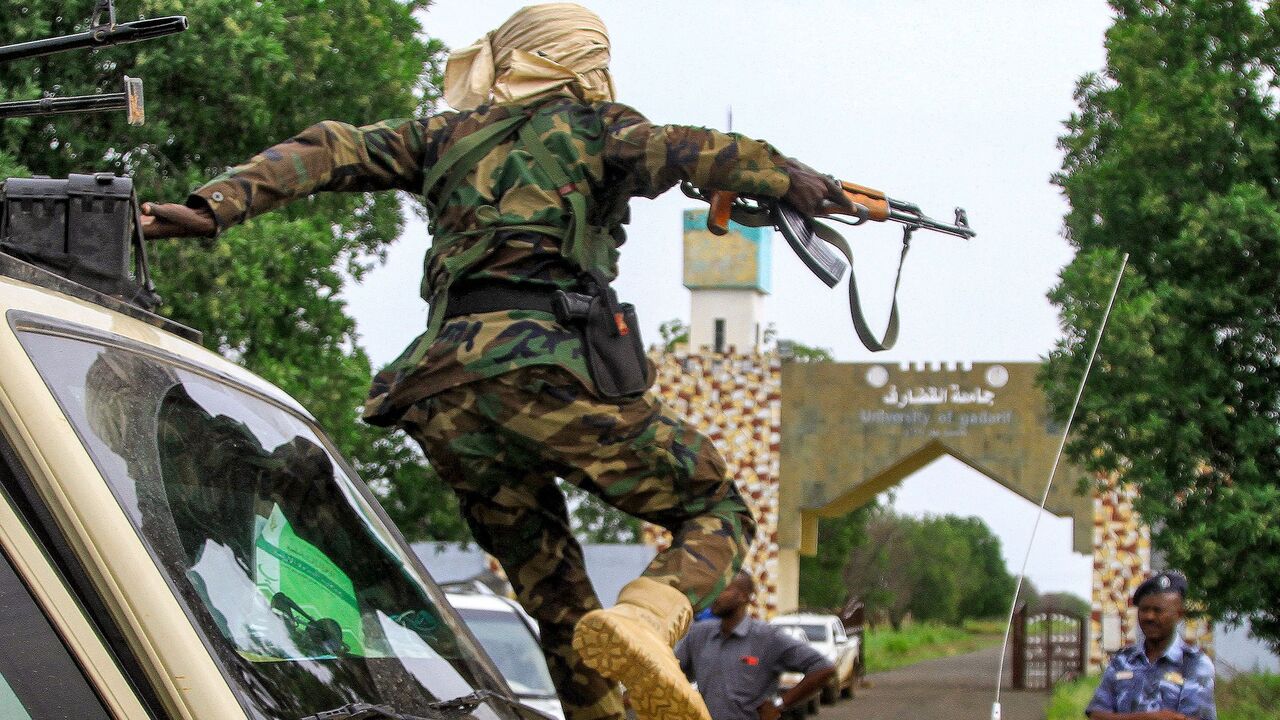
A new wave of displacement has hit Sudan as the war between the Sudanese Armed Forces and the paramilitary Rapid Support Forces spread to the formerly safe city of Wad Madani, the capital of al-Jazeera state in east-central Sudan.
Last Friday, the RSF launched an attack on the outskirts of Wad Madani, where the army is in control, with hundreds of vehicle-mounted weapons heading toward the city, according to local reports.
In a Monday statement posted on X, the paramilitary group said it had taken control of the army's First Infantry Division in Wad Madani.
By Tuesday, the RSF had established a base in Wad Madani and taken control of Rufaa and Abu Guta village.
The swift advancement of the RSF toward Wad Madani, 85 miles (136 kilometers) southeast of Khartoum, has raised concerns among UN agencies and rights organizations about the fate of the millions of people in the area.
Wad Madani, considered Sudan’s breadbasket, was a center of humanitarian operations and a safe haven for thousands of displaced people who fled the conflict in Khartoum.
Around 5.9 million people live in al-Jazeera state along with nearly 500,000 displaced. Wad Madani alone houses more than 86,000 displaced people in addition to its population of 700,000, according to the UN humanitarian agency OCHA.
Deepening humanitarian crisis
The recent fighting around Wad Madani has forced several humanitarian organizations, including the International Rescue Committee, to relocate their staff.
“This disruption threatens to deprive millions in need of crucial humanitarian aid and will lead to new waves of displacement,” the IRC warned in a Saturday press release, calling for “an end to hostilities and the lifting of all barriers preventing populations from accessing humanitarian aid.”
Around 300,000 people have fled Wad Madani since the fighting erupted around the city over the weekend, the International Organization for Migration said on Monday.
OCHA spokesperson Sofie Karlsson told the Washington Post on Tuesday that the situation was a “nightmare,” expressing “concerns about the potential humanitarian consequences as more people are displaced.”
Videos and photos circulating on social media show people fleeing the city in trucks or on foot.
نزوح الالاف بسبب جرائم مليشيا الدعم السريع السودان. pic.twitter.com/c9n3Zb7hYs
— wolverine (@Wolveri07681751) December 19, 2023
The UN refugee agency UNHCR also warned of the escalating conflict and forced displacement in Sudan.
“Despite efforts by national and international humanitarian organizations and local actors to provide assistance, the overall humanitarian situation remains dire,” the UNHCR said in a Tuesday statement. “As the scale of the crisis and the potential for it to destabilize the entire region continues to grow, the world must not forget the ongoing situation in Sudan.”
Before the outbreak of the war on April 15, Sudan was already facing a humanitarian crisis due to decades of internal conflicts and political instability. Now the situation has reached catastrophic levels, according to aid agencies, compounded by human rights abuses allegedly perpetrated by both sides of the conflict.
Over 12,000 people have been killed since the war erupted, according to UN data. More than 5.4 million have been displaced within Sudan. Another 1.4 million were forced to flee to neighboring countries, mainly Chad, Egypt and South Sudan, according to a report released by the UN’s International Organization for migration last week.
The war has also left some 24.7 million people in need of critical humanitarian assistance, while between 70% and 80% of hospitals in conflict areas are out of service, according to the London-based Sudan's Doctors for Human Rights.
The World Food Programme warned last week of “catastrophic hunger conditions” if food deliveries across the country continue to be impeded, calling on all parties to the conflict to immediately halt the fighting.
Throughout the war, the North African country has also seen outbreaks of various diseases including cholera and malaria.
The RSF, which emerged in 2013 from the notorious Janjaweed militia used by longtime dictator Omar al-Bashir to suppress rebellion in Darfur, has been embroiled in a war with the Sudanese army for control since April 15 after years of instability that followed the fall of Bashir’s government in April 2019.
Since then, the RSF has seized four of Darfur's five states, most of Khartoum and parts of the Kordofan region.



